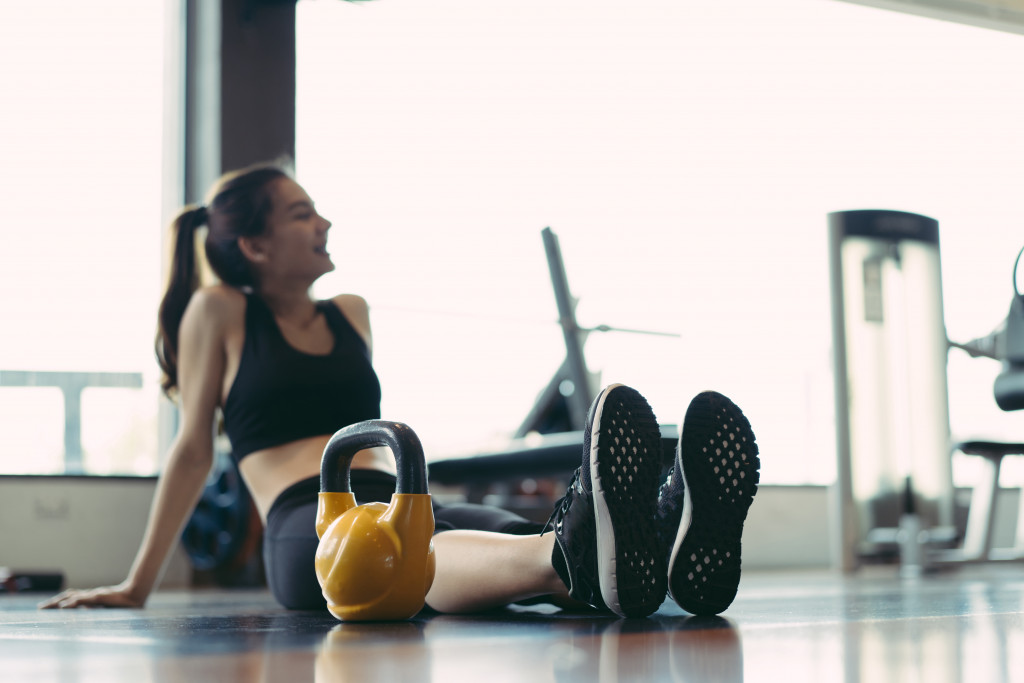- Fatigue can reduce an athlete’s speed, power, focus, concentration and increase the risk of injury.
- Dehydration impairs muscle contractility, aerobic and anaerobic capacity, thermoregulation, and cognitive function.
- Interval training is an effective way to increase stamina and endurance by alternating bursts of activity with recovery periods.
- Proper nutrition is essential for any athlete and should include nutrient-dense foods for muscle development.
Sports and physical activities can be challenging for athletes, especially when dealing with conditions that can influence their performance. Athletes often face various issues that impede their ability to perform at the highest level. So, what are these conditions, and how can athletes mitigate their effects?
Fatigue
One of the most common conditions that affect athlete performance is fatigue. An accumulation of physical and mental exertion and inadequate rest and recovery causes fatigue. When an athlete is tired, they may experience a decrease in speed, power, and accuracy. This can also result in a reduction in focus, motivation, and concentration, which can decrease performance and the potential for injury. To combat fatigue, athletes can focus on the following:
Sleep
Getting the proper amount of sleep is paramount for any athlete. Sleep helps to restore energy, reduce fatigue, and improve performance. During sleep, the body repairs tissues, replenishes energy stores and recovers from the physical demands of exercise. An adequate amount of sleep depends on individual needs, but seven to nine hours of good quality sleep each night is recommended.
Dehydration
Athletes must stay hydrated, as dehydration can lead to severe consequences for performance. Dehydration impairs muscle contractility, aerobic and anaerobic capacity, thermoregulation, and cognitive function. Even mild dehydration, defined as a 2-3% loss in body mass, can lead to a significant decrease in performance.
Interval Training
Interval training is an effective way to build stamina and endurance. It involves alternating short, intense bursts of activity with less intense recovery periods. This type of training allows athletes to push harder and recover faster, which can lead to better performance. It also allows athletes to practice the same activity at a higher intensity level for longer periods of time.

Nutrition
A proper diet is essential for any athlete. A balanced diet with carbohydrates, proteins, and healthy fats can help athletes achieve their performance goals. That’s why athletes need to focus on achieving the proper balance of macronutrients and micronutrients for their sport.
Nutrient-Dense Foods
Focus on nutrient-dense foods such as lean meats, fruits, vegetables, nuts and seeds, whole grains, and healthy fats. These foods provide essential nutrients for muscle development and performance. With the right combination of nutrients, athletes can fuel their bodies to maximize performance.
Supplements
No matter what sport, supplements can be beneficial for performance and recovery. Supplements are not necessary but can help athletes reach their goals faster. Common supplements include protein powders, creatine, omega-3 fatty acids, and vitamins.
Skin Conditions
As any athlete knows, skin conditions are one of the most common issues they may have to deal with. Skin conditions can be a nuisance for athletes, which can also affect performance. Common skin conditions include eczema, psoriasis, and blisters. To reduce the risk of skin problems, athletes should focus on the following:
Callus Care Kit
One kind of skin condition prevalent among athletes is corns (also known as calluses). Corns are thickened patches of skin that form around areas that experience repeated friction from clothes or bandages, particularly the fingers. When the condition worsens, it can become excruciating and impede performance. To prevent this, athletes should invest in a callus care kit which includes files and moisturizers to help remove corns on their fingers. This way, athletes can maintain performance and minimize discomfort.

Sunscreen
Athletes should also use sunscreen when outdoors since ultraviolet (UV) radiation can cause skin conditions such as sunburn, discoloration, and skin cancer. Sunscreen with SPF 30 or higher is recommended for athletes to protect their skin from the sun’s harmful rays.
Protective Clothing
Nothing can be more embarrassing for athletes than having discoloration on their skin. Hyperpigmentation is the darkening of certain areas of the skin due to increased melanin production. This can be caused by various things, such as sun exposure, hormones, and genetics. To minimize the risk of hyperpigmentation, athletes should wear protective clothing to shield their skin from the sun’s UV rays or other environmental factors. This will help protect their skin from any discoloration or damage.
These conditions can be detrimental to an athlete’s performance if they are not managed properly. With the right strategies and practices, athletes can mitigate the effects of these conditions and be well on their way to achieving their goals.






